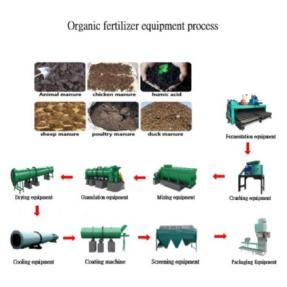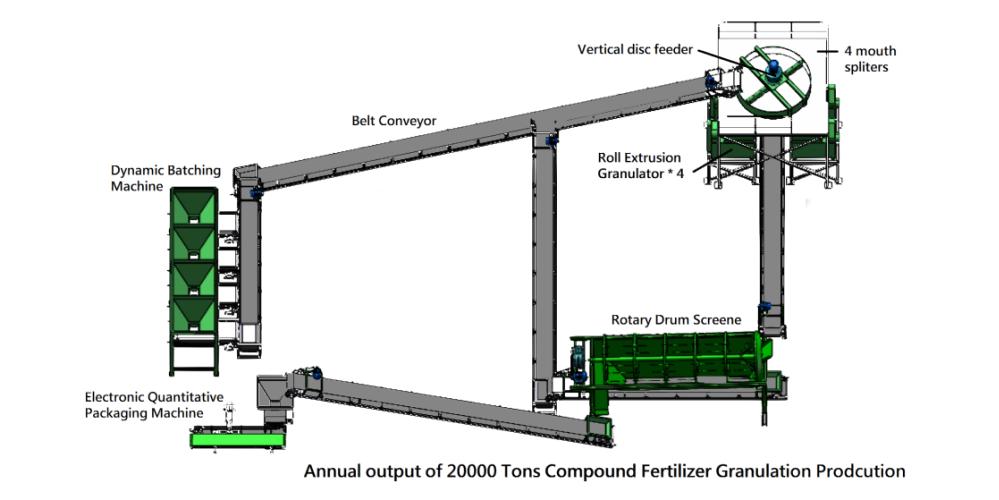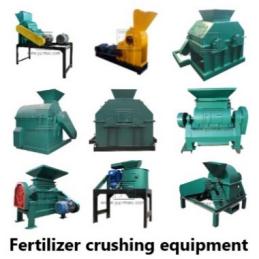Industrial compost shredder
In large-scale organic waste processing operations, an industrial compost shredder plays a crucial role in achieving efficient and effective composting. Designed to handle substantial volumes of organic waste, an industrial compost shredder offers powerful shredding capabilities to break down various materials quickly.
Benefits of an Industrial Compost Shredder:
High Processing Capacity: An industrial compost shredder is designed to handle significant volumes of organic waste efficiently. It can shred bulky materials, including branches, logs, stumps, agricultural residues, and other organic waste, ensuring smooth and continuous processing for large-scale composting operations.
Accelerated Decomposition: The powerful shredding action of an industrial compost shredder increases the surface area of the organic waste, promoting faster decomposition. The smaller particle size facilitates microbial activity, allowing microorganisms to break down the materials more effectively and expedite the composting process.
Homogeneous Compost Mix: By shredding organic waste into consistent particle sizes, an industrial compost shredder creates a more uniform compost mix. This uniformity ensures better integration of composting components, resulting in a balanced blend of organic materials and improved compost quality.
Waste Volume Reduction: The shredding process of an industrial compost shredder significantly reduces the volume of organic waste. This waste volume reduction optimizes storage capacity, minimizes transportation requirements, and lowers disposal costs for large-scale composting operations.
Features of an Industrial Compost Shredder:
Robust Construction: Industrial compost shredders are built with durable materials, such as high-grade steel, to withstand the demands of heavy-duty operations. Sturdy construction ensures longevity and resistance to wear and tear, even when processing tough organic waste materials.
Powerful Motor: Industrial compost shredders are equipped with high-capacity motors to deliver the necessary power for shredding large volumes of organic waste. The motor strength and horsepower directly impact the machine’s shredding capabilities and processing efficiency.
Cutting Mechanism: These shredders utilize advanced cutting mechanisms, such as multiple blades, hammers, or flails, to effectively shred various organic waste materials. The cutting mechanism is designed for optimal performance, ensuring efficient and uniform shredding.
Safety Features: Industrial compost shredders incorporate safety features to protect operators and maintain safe operation. These features may include emergency stop buttons, safety guards, and automatic shut-off mechanisms in case of any malfunction or potential hazards.
Applications of an Industrial Compost Shredder:
Municipal Composting Facilities: Industrial compost shredders are essential in large-scale municipal composting facilities. They process diverse organic waste streams, including yard waste, food scraps, and green waste, enabling efficient decomposition and production of high-quality compost for municipal use.
Commercial Composting Operations: These shredders are widely utilized in commercial composting operations, such as composting centers and waste management facilities. They handle significant volumes of organic waste, supporting efficient composting processes and large-scale waste diversion from landfills.
Agricultural and Farming Operations: Industrial compost shredders find applications in agricultural and farming operations. They process crop residues, manure, and other agricultural waste, contributing to nutrient recycling, soil improvement, and sustainable farming practices.
Forestry and Land Clearing: These shredders assist in forestry and land clearing projects by efficiently shredding tree branches, logs, and other woody materials. The shredded organic waste can be utilized for composting, biomass energy production, or land restoration initiatives.
An industrial compost shredder offers efficient processing capabilities for large-scale composting operations. With benefits such as high processing capacity, accelerated decomposition, homogeneous compost mix, and waste volume reduction, these shredders play a vital role in achieving efficient and sustainable organic waste management. When considering an industrial compost shredder, evaluate features such as robust construction, a powerful motor, advanced cutting mechanisms, and safety features.



.jpg)




